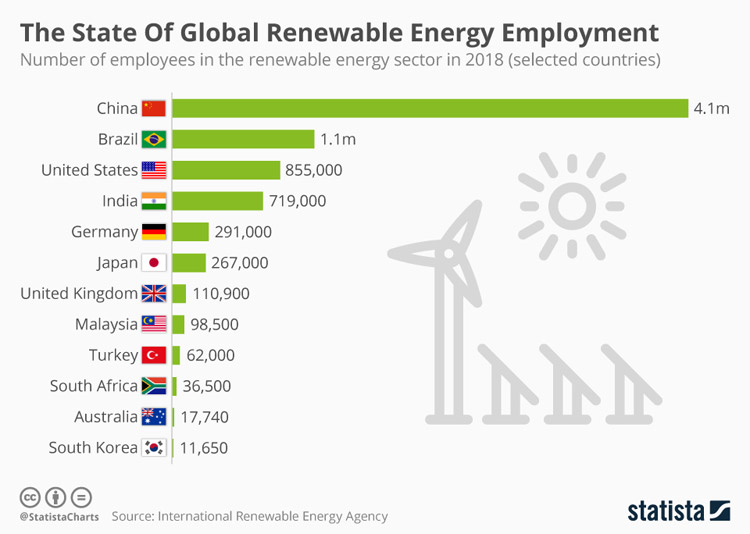March, 2, 2022

The Silk Road Journal by Mahika Ming
Sri Lanka is entangled in an energy crisis due to many reasons as of now. While the forex inflow mechanisms are not yet fully operational after the COVID pandemic, forex reserves are largely used to purchase fossil fuel for transport and energy. Thus the public experience long queues near gas stations and power cuts etc. Sri Lanka had a positive approach towards renewable energy production and promoting electric cars etc. but it changed due to new taxes introduced on electric cars and related equipment introduced after 2015.
It is time for Sri Lanka to study the success stories home and abroad and take immediate steps. One success story is China. It’s very clear that China has placed renewable energy sources as one pillar of national security more than a mechanism to reduce carbon emissions.
China like Sri Lanka is blessed with lots of water, wind and sun and has proven that renewable energy can be created in abundance. Chinese government initiated the “Golden Sun” project about a decade ago and China has taken the lead in manufacturing renewable energy technologies dramatically reducing the market prices while expanding the market at the same time. China by now is the No 01 producer of Photovolitc power. During the last 15 years production of solar cells in China has increased 100%. By 2017 global investments in the sector was approx. USD 280 billion and China alone invested approx USD 126.5 billion (approx 46%) (Ref: Chinese statistics).
Another success story to save energy and money paid for electricity or kerosene oil is the Sri Lankan story from the late 80s. Many who lived in Sri Lanka (including those who did GCE AL and OL) during that time would remember how they covered their windows with cardboard and curtains to prevent light going out at night. Those who didn’t use any light at night were able to save money from the reduced electricity/ kerosene bill and live to experience 2022 power cuts. Those who used electricity or kerosene lamps without covering the windows had to pay the electricity/ kerosene bills and leave the following morning. Those who covered the windows before illuminating their homes at night were also lucky.
The writer is an analyst with interests in the financial and sustainable development sectors with postgraduate exposure in the Far East (mahika.ming@gmail.com).
Video Story